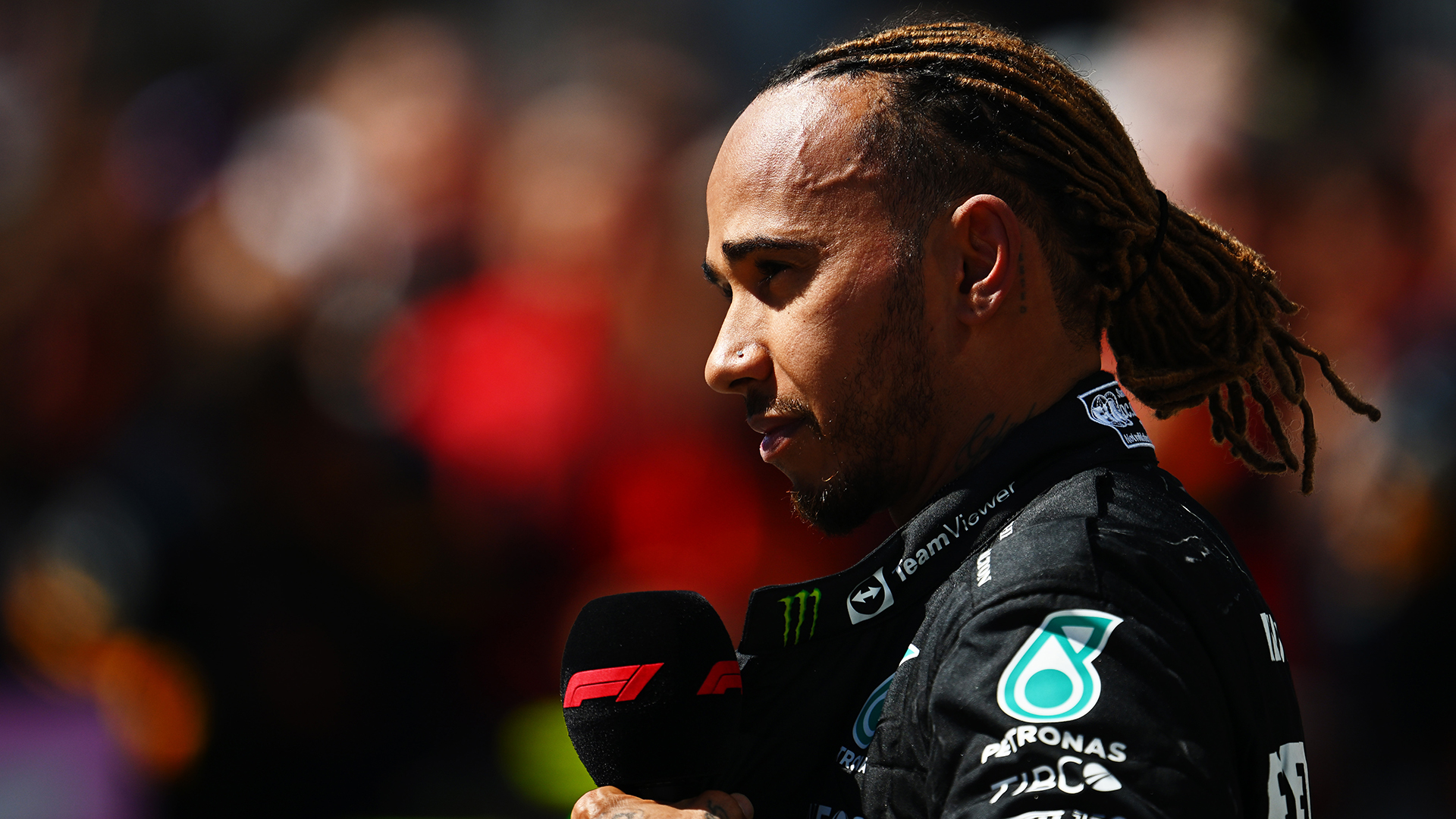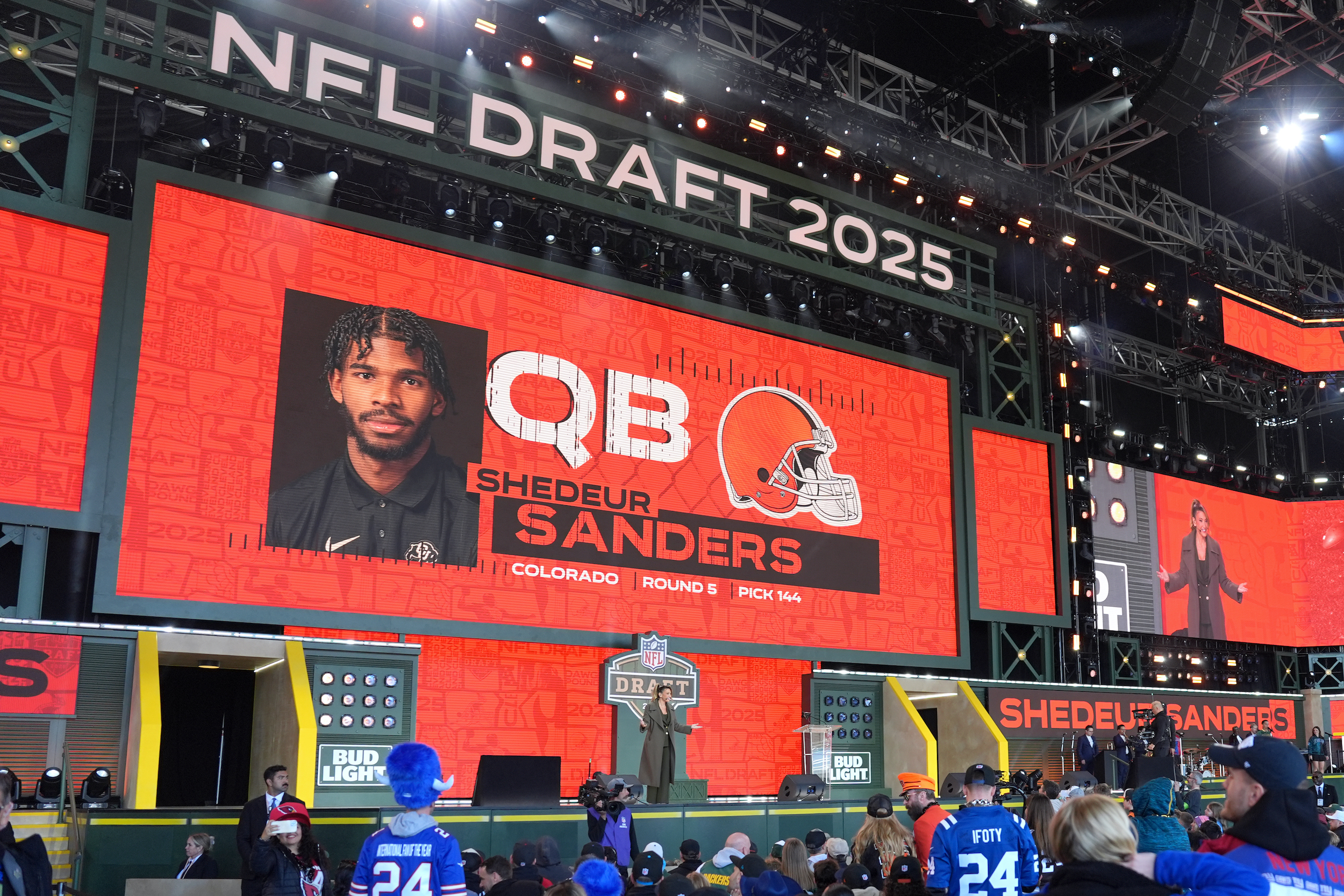Here's a trivia question: What does Formula 1 do when a former world champion calls one of its current drivers a racial slur? Not a whole lot, it turns out.
In a podcast interview recorded in November but re-surfaced on Monday, three-time world champion Nelson Piquet ranted about Lewis Hamilton and called him a slur that roughly translates to the N-word in English. Piquet was discussing last year's Silverstone Grand Prix with Motorsport Talk's Ricardo Oliveira, and specifically Hamilton and Max Verstappen's collision on the first turn of that race. Perhaps unsurprisingly, as his daughter is dating Verstappen, Piquet blamed Hamilton for not controlling his car, and called him the slur. Though video of the interview had been posted to YouTube in March, according to The Guardian, it only made the rounds in English this week.
Hamilton responded on Tuesday, tweeting "Let's focus on changing the mindset" in Portuguese, as well as a call to action, any sort of action beyond a vague commitment to awareness:
It’s more than language. These archaic mindsets need to change and have no place in our sport. I’ve been surrounded by these attitudes and targeted my whole life. There has been plenty of time to learn. Time has come for action.
— Lewis Hamilton (@LewisHamilton) June 28, 2022
(He also quote-tweeted a fan who asked "What if Lewis Hamilton just tweeted ‘Who the fuck is Nelson Piquet?' then closed twitter." Hamilton simply said, "Imagine.")
Given that Hamilton is both the most successful driver on the grid currently and Formula 1's biggest name, one could have expected the organization to stand fully behind him and do something about Piquet. That would be too simple for F1, though, which instead released a flaccid statement that doesn't even bother to name Piquet or reference the incident directly.
— Formula 1 (@F1) June 28, 2022
Not to be outdone, the Fédération Internationale de l'Automobile, Formula 1's sanctioning body, released a statement that was as bold as dry toast:
The FIA strongly condemns any racist or discriminatory language and behaviour, which have no place in sport or wider society. We express our solidarity with @LewisHamilton and fully support his commitment to equality, diversity and inclusion in motor sport.
— FIA (@fia) June 28, 2022
Even Mercedes, Hamilton's team, could only string together a bunch of corporate-approved synonyms vaguely pointing at something that related to their star driver.
— Mercedes-AMG PETRONAS F1 Team (@MercedesAMGF1) June 28, 2022
As of press time, it does appear that F1 will ban Piquet from its paddocks unless he apologizes publicly and to Hamilton. That seems like a strong piece of action, but in reality, it only cues up what is likely to be a PR-messaged statement of apology and a "forgive and forget" mindset from the higher-ups of motorsport.
There are no real consequences to be had here, because Formula 1 isn't set up to deal with racism, despite its "We Race As One" campaign that sprouted in the wake of George Floyd's death by police. When Hamilton began to kneel in protest once Formula 1 came back from the pandemic lockdown, he was joined by some, but not all, of his fellow drivers. Formula 1 was willing to use Hamilton to push forward its own nebulous commitment to anti-racism work, but there is a deep-rooted ambivalence towards racism as an actual thing that happens. Look no further than F1 posting new rules for driver attire after Hamilton wore a shirt mentioning the death of Breonna Taylor by Louisville police.
You don't have to look too far back in the past to see more examples: Just this month, a Red Bull F2 driver was caught on a video game livestream saying the N-word during a Call of Duty match. Jüri Vips was initially suspended by his team following an investigation into the heated gaming moment. Coincidentally, Red Bull has not said anything about Piquet's comments about Hamilton, with reports saying that the team will not respond at all. It did, however, follow up on Vips's suspension on Tuesday, terminating his contract and condemning racism without mentioning the case of racism currently swirling around the team's orbit.
— Oracle Red Bull Racing (@redbullracing) June 28, 2022
Hamilton has spoken out in the past about the racism he has faced while becoming the first Black world champion in Formula 1, but rarely does it get more obvious than in this moment, with Piquet's comments serving as the perfect example. Rather than giving vague support for Hamilton's own work in bettering the diversity issues in motorsport, Formula 1 could have done the work itself by acting swiftly and decisively against Piquet. It's cliched, but in this case, actions would have spoken much louder than 47 words that say little at all.
And it's not like Formula 1 is a slow-to-act bureaucracy when it comes to regulations and punishments. It actually moves quite fast to enforce its complicated rulebook, and to nip unfair advantages in the bud almost as soon as they become cumbersome. In 2020, the FIA moved to ban "party mode" engines, which essentially were suped-up engine modes that could provide teams—mainly Mercedes—with faster qualifying times. There was no hemming and hawing over that decision once it was raised as an issue; the ban came down, and everyone adjusted and moved on with their lives.
It's not hard to see Formula 1's priorities here. Hamilton is paraded around as a success story, a seven-time world champion who does the hard work that Formula 1 doesn't want to do. When it is convenient, or at least non-intrusive, the racing giant is glad to step in and brand the shit out of Hamilton's ideas. However, when a celebrated driver and former champion calls a current driver and champion the N-word, the lack of conviction shines through.
It's not even surprising coming from Piquet, nor is it the first time he's shown himself to be a shameless or hateful man; during his racing days, he often derided his countryman, Ayton Senna, and accused him of being gay. Formula 1 essentially decided this is a case of "grandpa just being grandpa." This is the type of legend F1 decided deserves nothing stronger than a press release and a conditional pass to all of its events. If F1 was serious about the commitment to inclusion that it claims to support, it would recognize that the disinterested response speaks volumes to the drivers it wishes to court, those who share more in common with Hamilton than the nearly monochrome roster currently on display. The moment for a real show of support for its most popular figurehead driver has already passed. It's hard to take the sport's commitment to anti-racism seriously when it would rather move on to the next race than call out an aging bigot looking to settle scores for his daughter's boyfriend.






